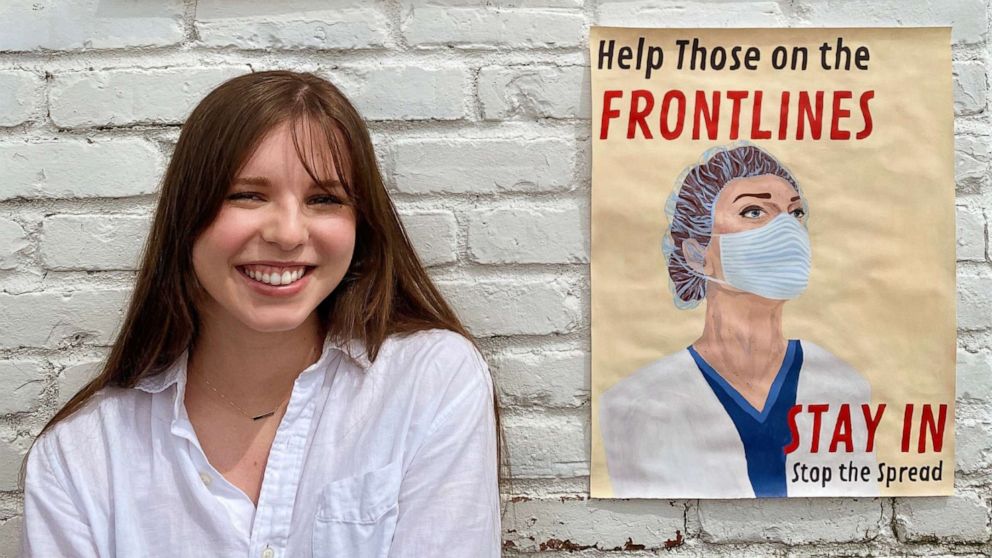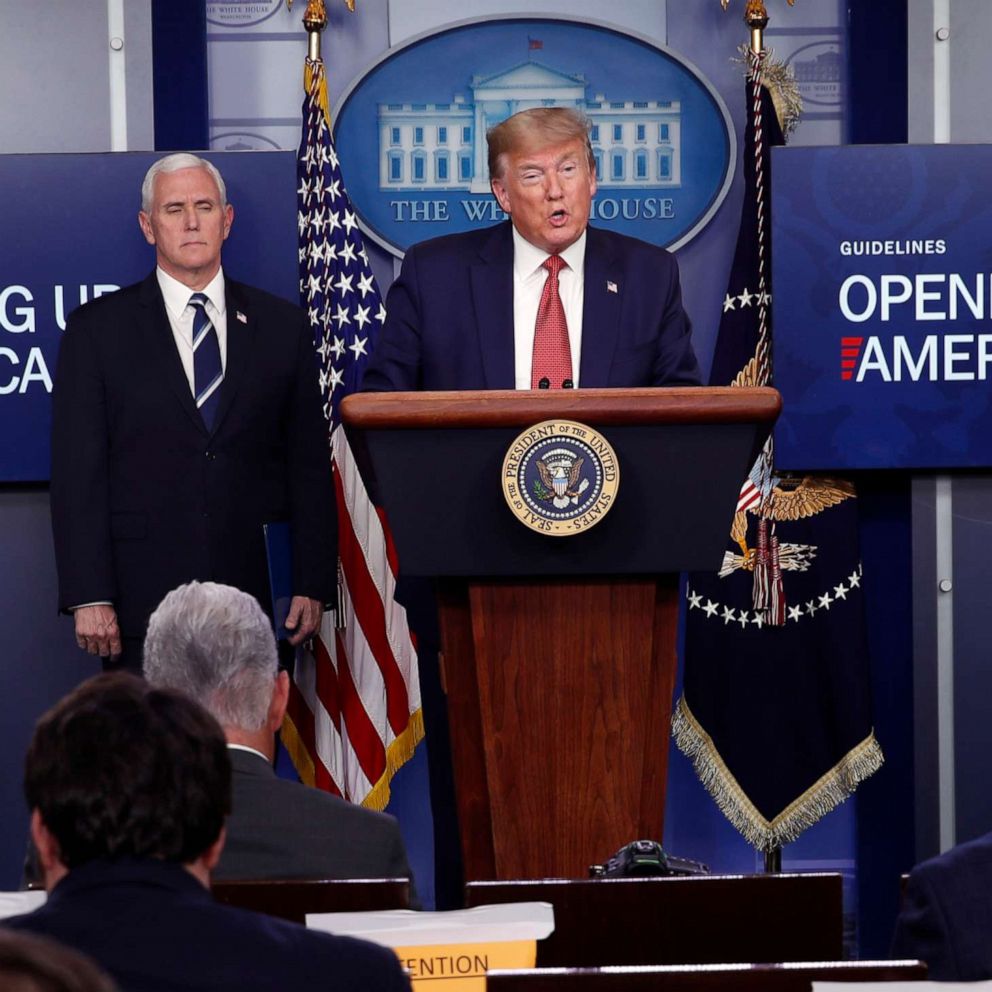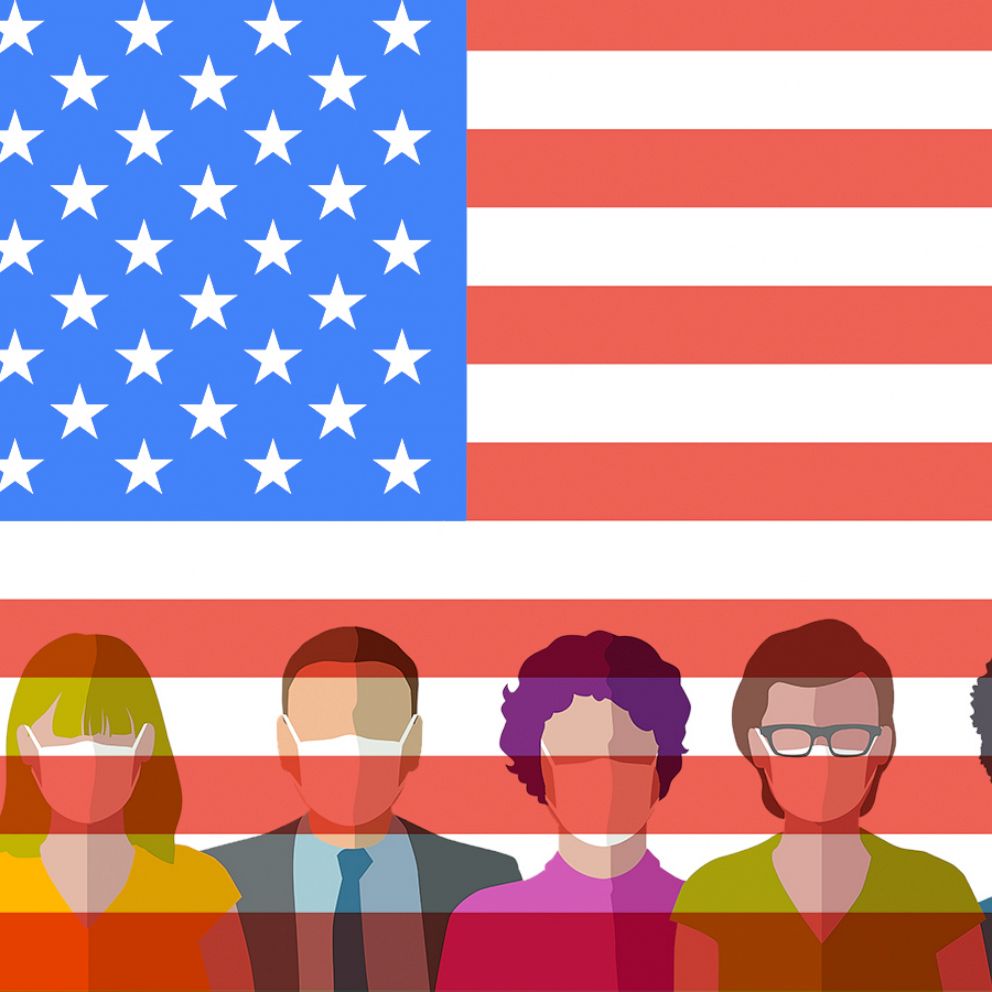Artist finds inspiration in war propaganda for COVID-19 'Stay In' posters
Sylvia Bueltel, like a lot of Americans, found herself out of work and glued to the news as the grim reality of the COVID-19 threat to America sank in earlier this spring.
"It was very difficult looking through all those articles and feeling super bombarded by it all," she said. "Seeing things on Instagram and Twitter and just being completely overwhelmed with all of this information."
The 22-year old artist, a recent graduate of Loyola University in Chicago, said that as she listened to the voices at the highest levels of government -- declaring war on the virus and beseeching all Americans to share in the efforts to flatten the curve -- she started looking for a way to put her artistic talents to good use.
"Something that I've always found interesting is propaganda posters," she said. "I researched a lot of the motifs that were used in war-time propaganda, and I found a lot of inspiration in that."
So she set up a makeshift studio in her basement and got to painting.
She first came upon a World War II-era poster warning of spies in our midst -- "Telling a friend may mean telling the enemy" -- and thought of how the virus was spreading in the community, often by people unaware they were contagious. Her four-panel pandemic poster cautions: "Seeing a friend may mean spreading COVID-19."
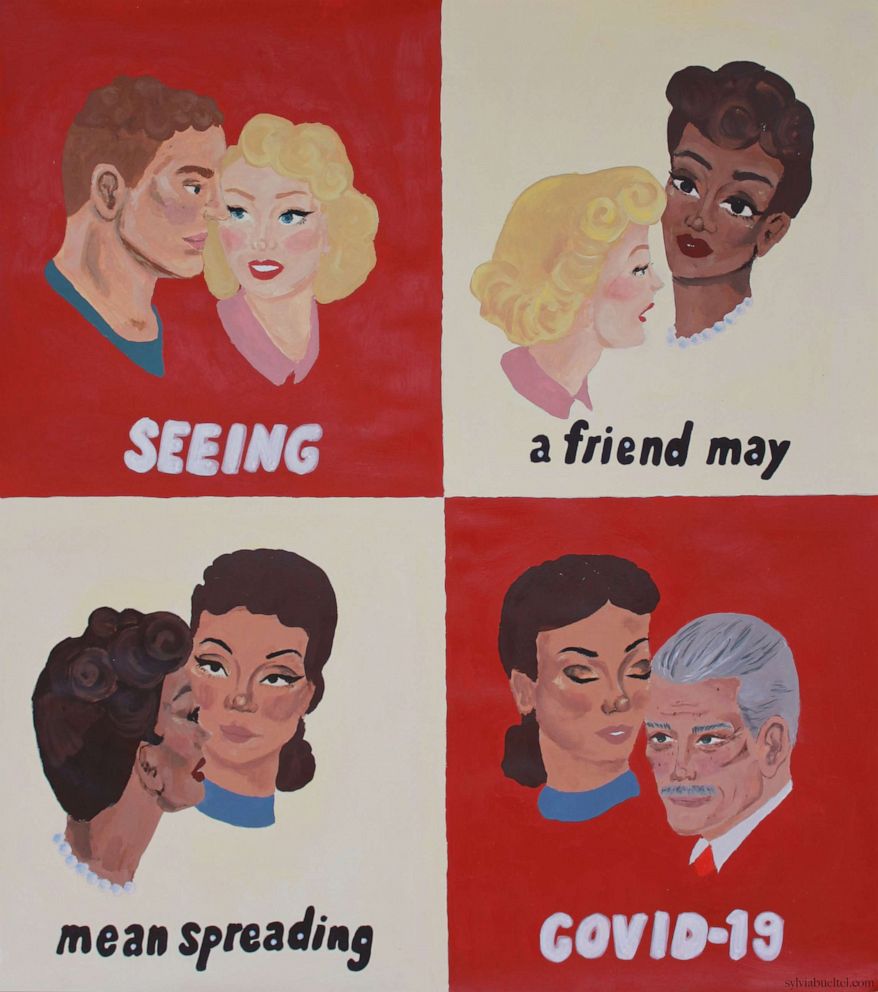
After sharing a photo of that first poster on Instagram, the reactions told her she might be onto something.
"When it actually was doing really well, I was like, 'wow, that's kind of surprising and exciting that people are really interested in this artwork,'" she said.
Since beginning the project in late March, Bueltel has completed five posters in the series, each saturated with patriotic colors and evincing themes of sacrifice and duty -- with the "We Can Do It" ethos of "Rosie the Riveter" and "Uncle Sam."
The fourth painting is a pandemic-themed update to the most ubiquitous war-time propaganda poster in American history: James Montgomery Flagg's iconic "I Want You" World War I recruitment poster. The Uncle Sam in her poster is decidedly gentler and more encouraging than the stern, finger-pointing version of 1917.
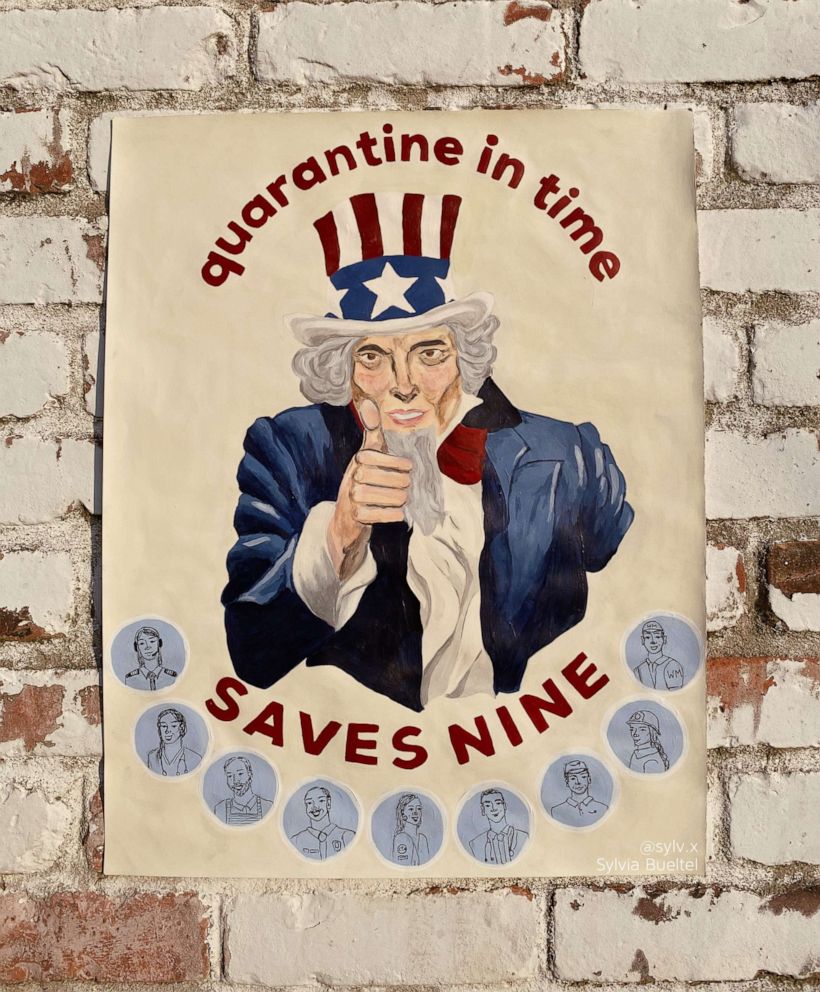
"He's actually giving a thumbs-up and underneath him are nine essential workers," Bueltel says. And the message is, "if you quarantine, you can help those people who don't have the option to quarantine, like doctors and nurses, and grocery store clerks."
Bueltel says she never really expected much notice of her work, but after a relative posted a few pictures on Twitter, a buzz began to build and people started inquiring about where they could buy her art. And with some help from her father in Minnesota, she's now managed to set up a remote operation to produce and ship the posters.
Bueltel's series got an even bigger boost on social media last month, after co-host of "The View," Meghan McCain -- the daughter of the late Senator John McCain -- shared one of the paintings on Instagram to her 396,000 followers, adding the hashtag #stayhealthy.
"It's really meaningful to see that people still do find a lot of comfort in art," Bueltel said, "especially in difficult times like these."
One of the most popular posters in the series, Bueltel said, is one which depicts a female doctor and asks people to stay inside to "Help Those on the Frontlines." Bueltel says her inspiration for this piece was not war propaganda, but superheroes -- in this case, the doctors in the front-line battle against the virus.
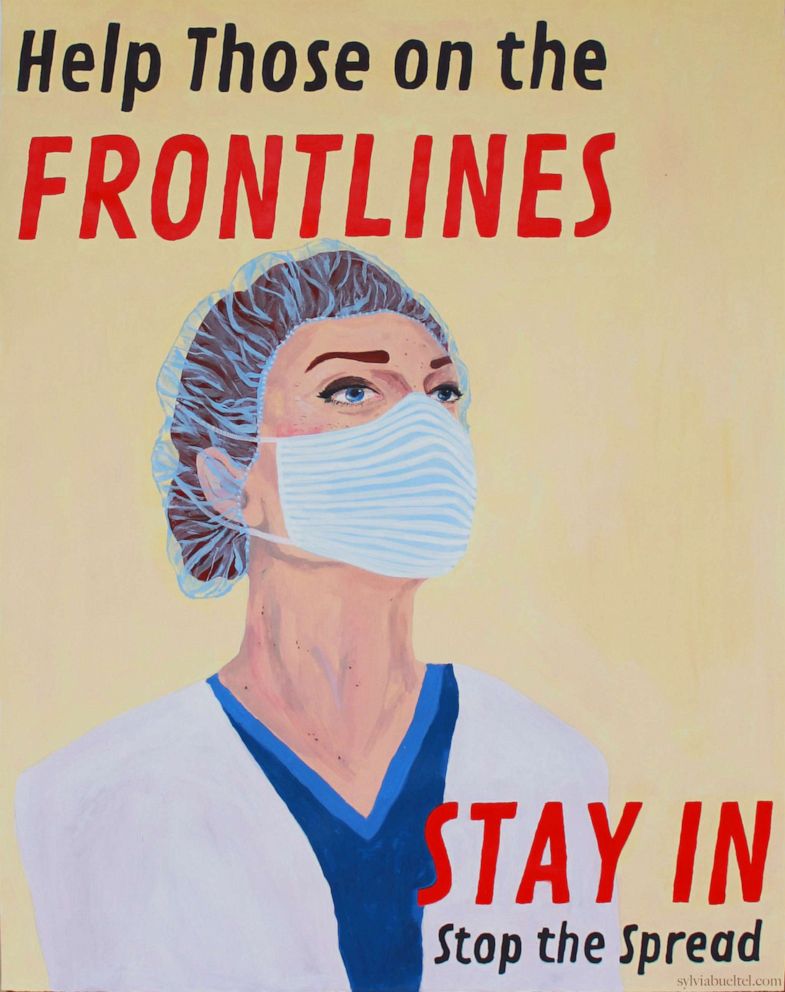
"I wanted it to be a female doctor," she said. "A lot of the images that you see of Superman, he's looking to his left. It represents the doctor looking towards the future. And it's inspiring and motivating and unifying."
Even now, as the country begins cautiously opening up, Bueltel hopes the messages in her art carry on -- and that people will carefully strike a balance between the drastic economic pressures and the ongoing risks of the pandemic.
"I understand that people are restless, and that it is really difficult to have everything closed and see the economy struggle. I totally get it," she said. "But other people's lives are on the line. And it is something that's really important to me that people take it seriously."
What to know about the coronavirus:
- How it started and how to protect yourself: Coronavirus explained
- What to do if you have symptoms: Coronavirus symptoms
- Tracking the spread in the U.S. and worldwide: Coronavirus map
